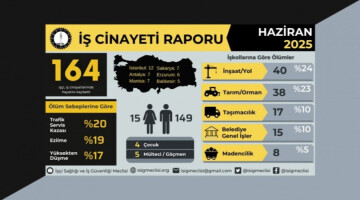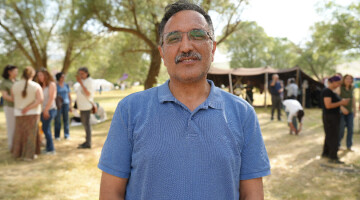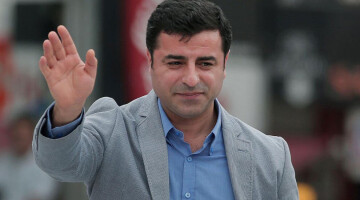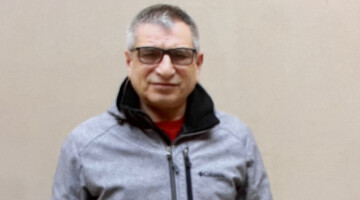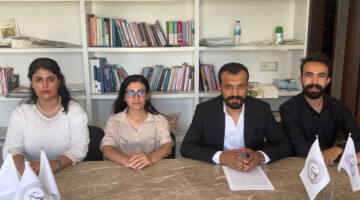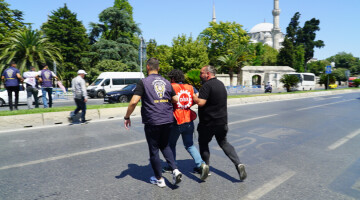Abducted, abused, threatened with death: in North Kurdistan, this repression sequence is again a widespread method that the Turkish state uses to suppress political dissidents.
Increasingly, young people in particular are going public and reporting experiences that are reminiscent of one of the country's darkest chapters. Enforced disappearances of “enemies” were a common practice of the secret service and paramilitary forces, especially during the dirty war against the PKK in the 1980s and 1990s. Thousands of people were abducted during this time and only very few turned up again.
Many could only be identified as bodies in mass graves decades after their disappearance.
The procedure has changed in the meantime and abductees no longer have to fear death by torture - but nothing has changed in the matter itself.
The last known case is that of the Kurdish artist Dildar Didêrî. The singer, whose real name is Ali Çetinkaya, says he was kidnapped, beaten and threatened by people posing as police officers. He contacted the IHD branch in Batman (Êlih) and reported the incident.
The kidnapping of Dildar Didêrîs took place at a bus station in Bismil, south-east of Amed. After visiting family in the region, the musician prepared to go back to his home in Batman when he was stopped by three police officers on the terminal premises. “They showed me their police ID and put me in a vehicle. However, I was not taken to the police station,” Didêrî said in an interview with the Kurdish news agency Mezopotamya. Instead, he was handed over to three other people. The men were already waiting in an unmarked car and driving their victim to the village of Üçtepe, about ten kilometers southwest of Bismil. “We got off at an empty lot. There was nobody there” said Didêrî.
The informal detention lasted around four hours.
The musician said: “First, I was asked a number of questions. Because I refused to answer, I was beaten and verbally abused. That went on for about half an hour.” He was then brought to the ground by the alleged police officers that sat on him and put their hands around his neck.
The musician continued: "Because I was on the phone at the time of the arrest, they had access to my unlocked cell phone. They wanted information about my contacts and got angry because they didn't get the answers they wanted. They said: 'Why are you coming to Diyarbakir at all? In this desert we can get you out of the way without a soul noticing. If you help us, we will help you. We are the state.' Meanwhile, they kept hitting me.”
After the ordeal, Didêrî was abandoned on the side of the road. Regarding the possible motives of the perpetrators, he said that his kidnapping was an attack on Kurdish art and culture. “We are committed to promoting Kurdish cultural work and to maintaining the Kurdish language. This fact is met with intolerance and contempt [by the state]. That's why we're being attacked.”










